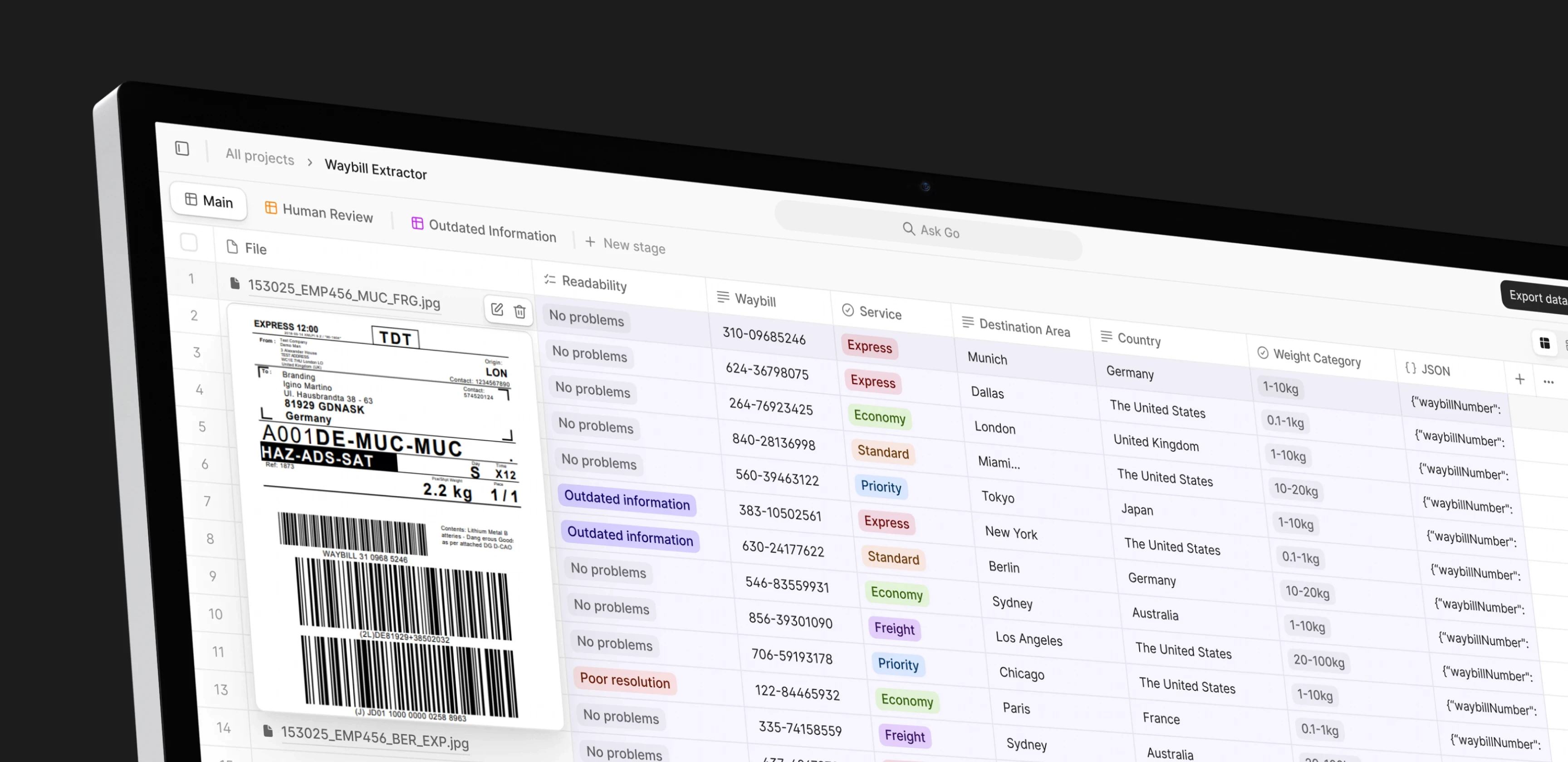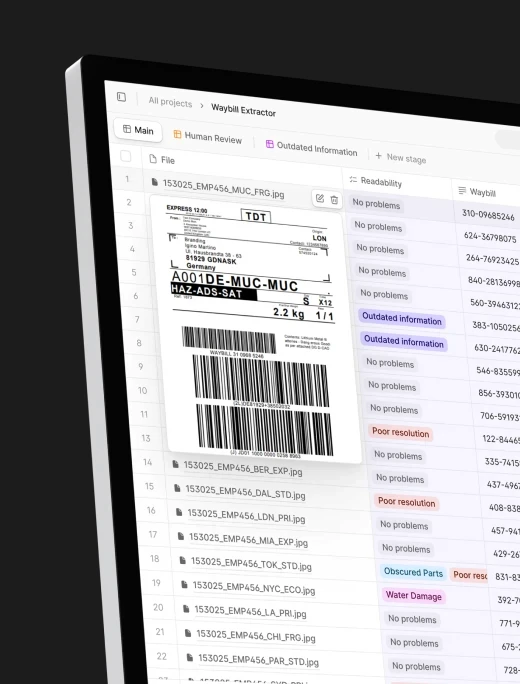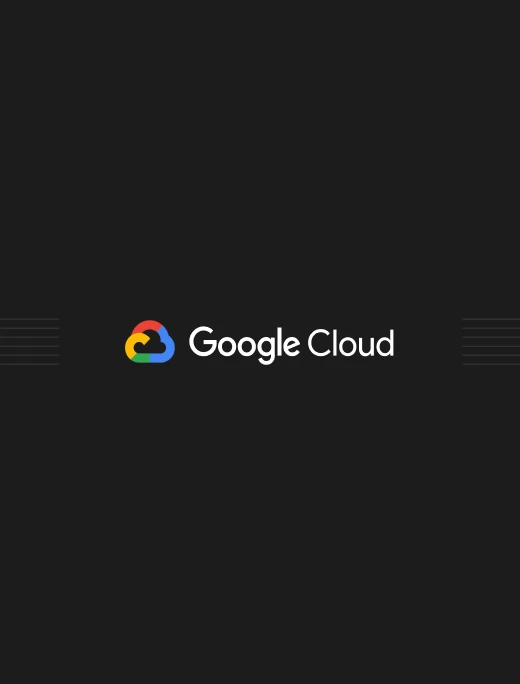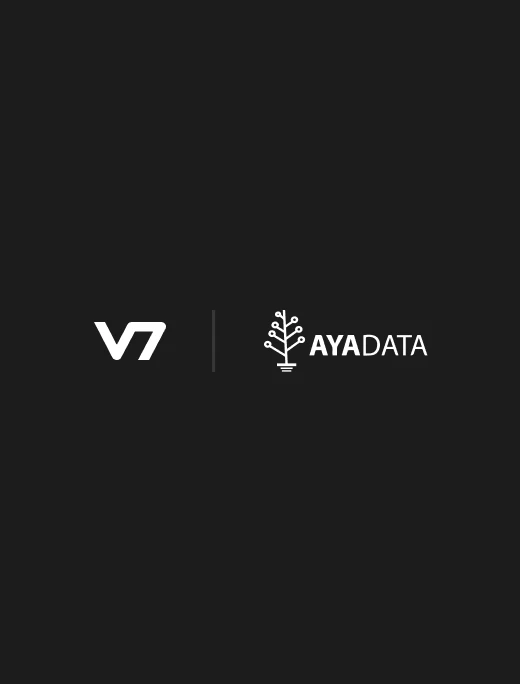V7 has released V7 Go, a work automation platform that leverages foundation models to learn repetitive tasks and automate them, reliably and at scale. In this article, we reveal how V7 Go came to life.

Co-founder & CEO of V7
V7 has released V7 Go, a work automation platform that leverages foundation models to learn repetitive tasks and automate them, reliably and at scale.
The product is being used by asset management firms to evaluate confidential information memorandums, top10 biotech companies to mine scientific research papers, and freight companies to automate document processing more accurately than incumbent tools.
V7 Go brings forth four main innovations in AI workflows: Index Knowledge - An agent environment for data extraction, Visual Grounding - A more accurate surfacing of references for AI explainability, Select Properties - An intuitive way to make Large Language Models (LLMs) select answers from finite options, and Workflows - A composable network of complex AI tasks.
V7 Go uses generative AI to understand how to automate tasks reliably and at scale. Its first areas of focus are back office tasks like data entry and administrative where it reaches human performance within the first hours of use. In a survey of V7 customers, over 90% named Generative AI among their priorities for this year, yet only 23% are using it. Those who didn’t cited a lack of machine learning capacity, and limited trust in foundation model workflows. As V7 Go solves these problems, we have seen customer adoption during the Beta phase double every month. By the end of 2024, we expect the number of inference calls on V7 Go to equal that of automated labels on V7 Darwin - a number that previously took us four years to reach. At present, 40% of digital tasks completed on-screen in the average company can be completed using AI to an equivalent degree of quality. With V7 Go, companies can automate this work at scale and find new efficiencies - allowing staff to focus on the work that really matters to the business.
Alberto Rizzoli, CEO and Co-Founder of V7 reflected on the market:
“AI Foundation models are now smart enough to take care of a lot of our least-favorite tasks at work, and much of the data they need to complete this is readily available in the cloud. There is a new market for AI workflows that enable foundation models to learn from this company data, making them more reliable at scale with every completed task. This is a leap far past the one-to-one interactions with chatbots, towards something that takes care of repetitive work on autopilot whenever it reappears.”
The platform is designed to abstract away most complicated AI model configurations, in favor of natural language instructions that follow with a model behaving as an agent, developing its own way to solve a task while learning from a human. This requirement emerges from the scarce capacity of machine learning engineers who compose less than 1% of enterprises and a new breed of companies building with AI, but without a dedicated AI research team.
V7 Go ingests documents, images, text or web pages such as a CRM entry, and can perform reasoning tasks on them at scale, such as the understanding of objects in many images, the restructuring of paper documents into spreadsheets, the processing of forms, or the evaluation of a confidential information memorandum.
Chain of Thought Reasoning
Behind the technology, lies the use of Chain of Thought Reasoning, a technique used by AI models to reflect on the steps required to complete a task before attempting it. V7 Go utilizes a system of data inputs and outputs that are configured to simulate the chain of thought process that users perform when completing data extraction or business analyst work.
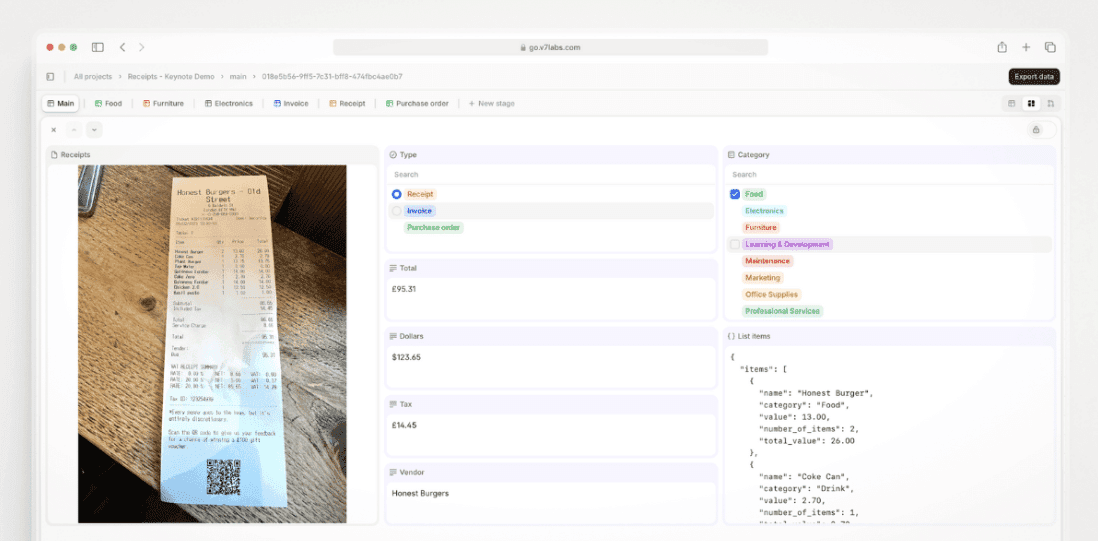
Index Knowledge
V7 Go is powered by Index Knowledge, a technology that breaks down large files containing information into small searchable indexes that enable LLMs to query information more accurately than retrieval augmented generation (RAG) techniques while using more compute as a tradeoff.
Traditional chat AI products simply inject text from documents into a prompt, whilst Index Knowledge utilizes the model itself to develop a data extraction plan, much like a human analyst would. This feature is particularly effective in files containing several numbers and uncommon terms such as proteins, proper nouns, and formulas which RAG often fails to retrieve.
Visual Grounding
On top of index knowledge, V7 Go users will be able to verify the location in a document or image where an LLM has sourced its information to exert a decision, increasing their explainability. For example, in an invoice processing use case with GPT-4, V7 Go exposes the model’s source of information visually and to a higher granularity than reference fields to a page or paragraph, highlighting the specific text in color to speed up human reviews of AI-completed tasks.
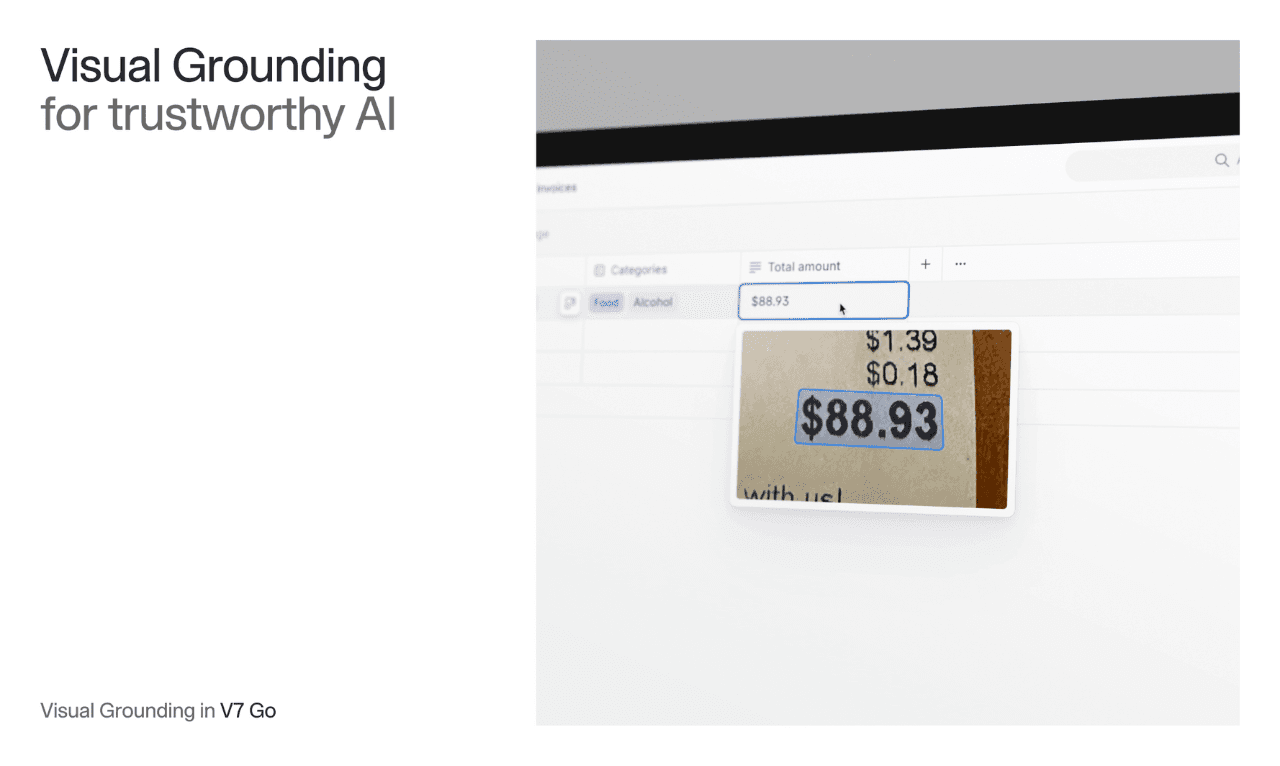
Select Options come to LLMs
To increase the reliability of LLM output, V7 Go supports Single and Multi Select properties, enabling users to determine a list of possible answers AI models can give, such as a pass/fail outcome, or a particular API response required by their product or a third party app. This innovation allows V7 Go projects to power products as a back-end, and connect to external apps via Zapier.
Workflows for AI
V7 also announces the availability for composable Workflows for V7 Go, enabling users to create bespoke data extraction pipelines based on the outcomes of Select Properties. This enables using models like GPT-4, Claude 3, or Gemini to perform data pre-processing, and generate separate processing pipelines for edge cases such as tasks requiring human review.
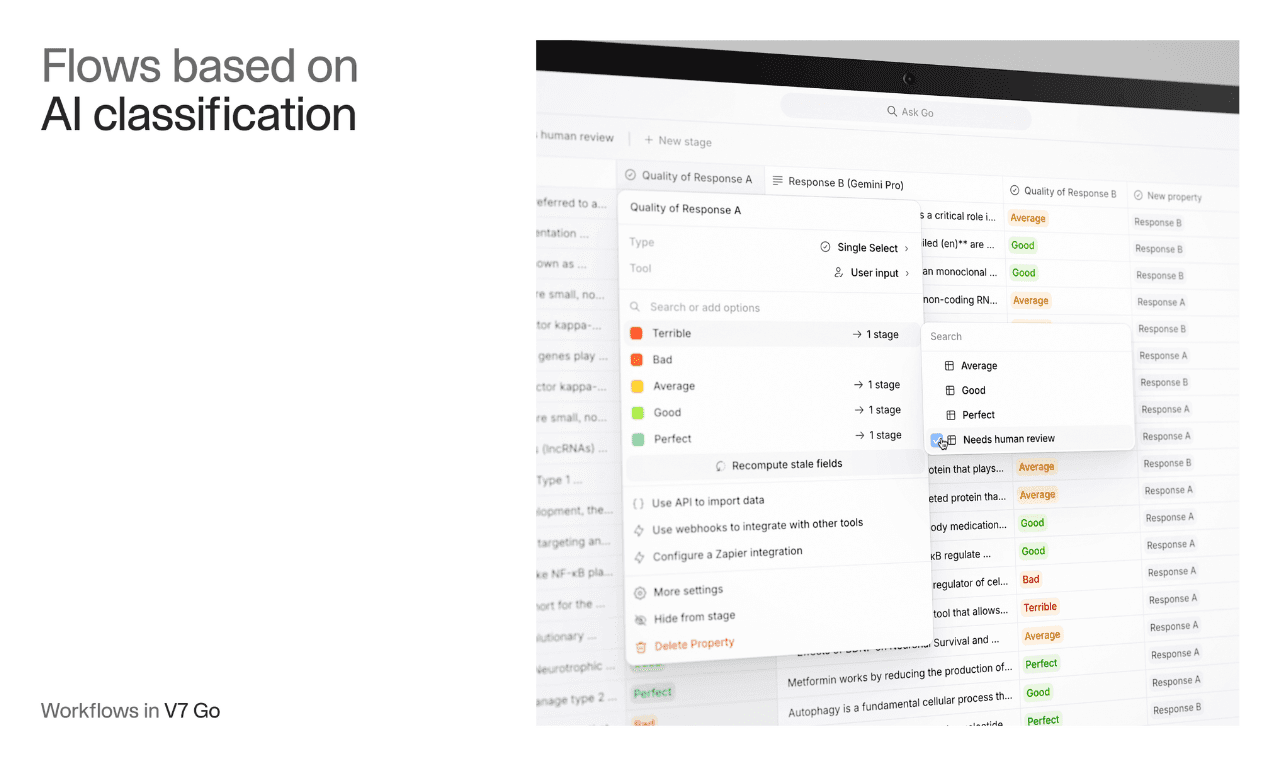
Scaling Trustworthy AI
V7 Go launches with the capacity of 10 million fields per project, each powered by a large language model capable of producing dozens of tokens in real-time, making it the most scalable AI-powered database on the market.
V7 is SOC2 Type 2 compliant, SSO enabled, and for enterprise clients, it can soon be run entirely on-premise via the Google Cloud Marketplace.
Mission Control
To power the next era of AI-first products, V7 also released a new design language named Mission Control. It is inspired by single purpose electronics from the lunar race era, and caters to two classes of users: human, and AI.As such, V7’s new product development comes with rearrangeable user interfaces, to enable artificial intelligence to optimize information layout intuitively based on the assigned task.
For example, making a document analysis view vertical versus a video classification task which is easier done in landscape.
V7 Go is available starting today. You can book a demo, and if your use case is a good fit, we’ll build a free proof of concept using your sample data—typically delivered in just a few days. Enterprise packages include Single Sign-On, SLAs, and dedicated support from V7’s solutions engineers.
V7 is a London-headquartered artificial intelligence SaaS business with the mission of turning human knowledge into trustworthy AI, powering products that solve our customer’s hardest problems. Founded in 2018 by Alberto Rizzoli and Simon Edwardsson, V7 is backed by Air Street Capital, Radical Ventures, Temasek, Partech, and Amadeus Capital.
V7’s original product, V7 Darwin, a data labeling and annotation platform, continues its growth, serving 350 customers including Mars, Bayer, Merck, Genentech, and Insitro. Over 4 years, V7 has enabled companies to label images and video 10x faster, accelerating the development and delivery of some of the most impactful AI products in the market.
